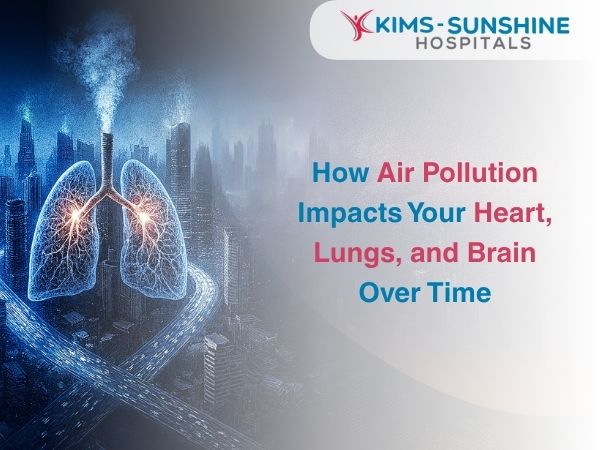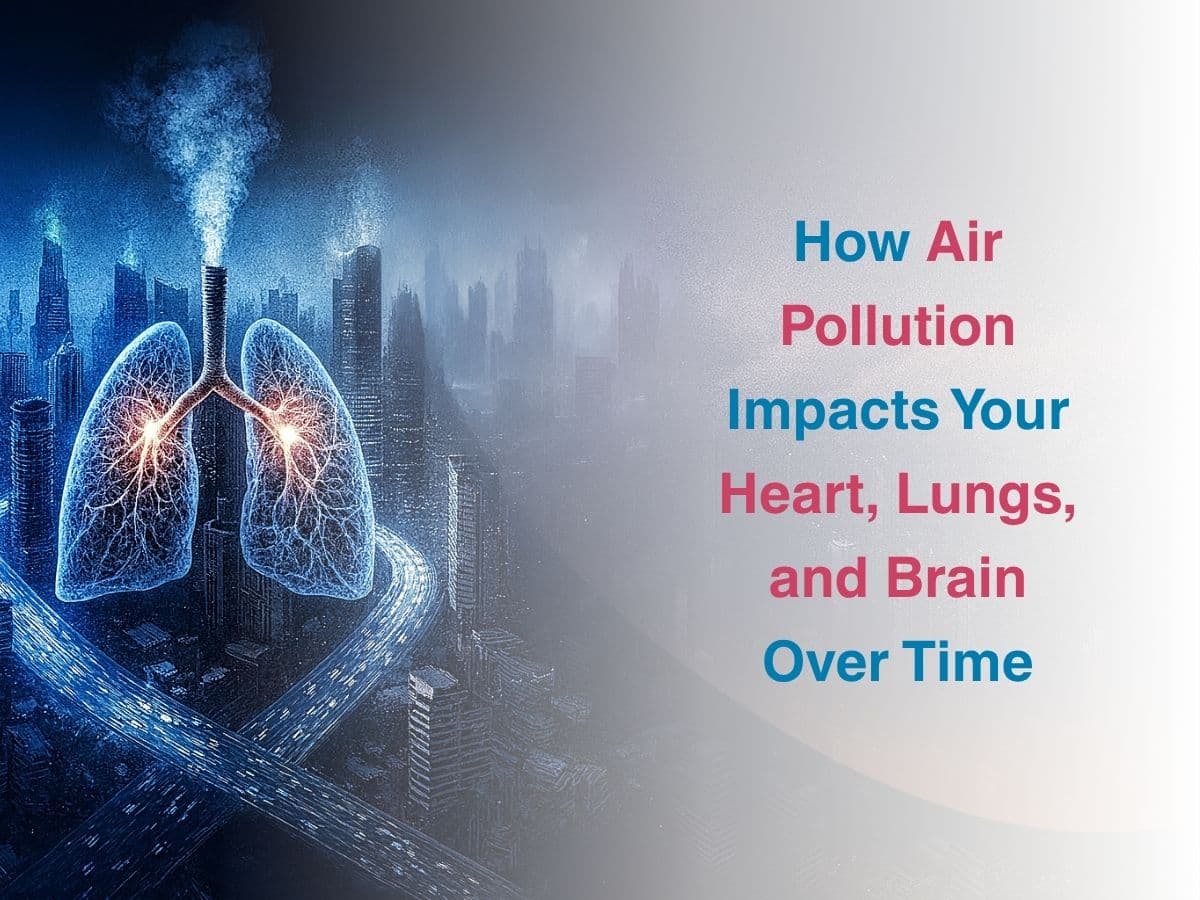
How Air Pollution Impacts Your Heart, Lungs, And Brain Over Time

Air is an essential element required by all living beings for the purpose of survival. Worsening air pollution in countries like India has dangerous ill effects on healthy individuals. Heart, lungs and brain require maximum amount of oxygen for functioning and prolonged exposure to toxic air can lead to respiratory, cardiovascular and brain disorders like asthma, lung cancer, COPD, heart attack, bronchitis, psychiatric- neurological conditions and dementia. According to a 2019 study in India, almost 1.67 million deaths occur annually from air pollution. This premature rise in the death of individuals puts a high toll on the economy of the country. Most of the metropolitan cities like Delhi, Mumbai, Hyderabad and Bangalore are prone to deaths and diseases due to contaminated air.
How Air Pollution Affects Lungs, Heart And Brain
On lungs: air comes in direct contact with the respiratory apparatus like nose, larynx, trachea and lungs. Air is a mixture of various pollutants; their concentration decides the percentage of pollution affecting your lungs. Prolonged exposure to highly polluted air can cause immediate onset of symptoms like cough, shortness of breath and inflamed airways. Symptoms like wheezing, reduced lung capacity, development of asthma, reduced respiratory activity are some of the initial symptoms seen. In severe cases, coughing up blood, lung collapse, pneumoconiosis, silicosis and cancer are seen with constant exposure to polluted air.
The heart and brain are also not spared and this will be covered in greater detail below.
PM 2.5 And Cardiac Health
Particulate matter, commonly referred to as PM 2.5 are classified as inhalable pollutants in air. These particles have a diameter of 2.5 micrometers, which can allow them to penetrate into deeper tissues and organs like heart, lungs and poison the blood. Due to its easy penetration into these vital organs, they negatively impact heart health by increasing the risk of heart attacks, strokes and cardiovascular diseases. These pollutants can cause inflammation in the heart, oxidative stress and changes in blood pressure due to sclerotic changes in the arteries. Symptoms like heart palpitations, chest pain and shortness of breath are seen.
Air Pollution And Cognitive Decline Of Brain
Air pollution affects the brain causing oxidative stress and inflammation, as the pollutants inhaled through the nose directly are absorbed into the brain, damaging brain cells. Long term exposure to polluted air can cause neuro-degenerative changes, producing diseases like Parkinson’s and Alzheimer’s. It affects cognition leading to reduced focus and memory, depression, anxiety and psychosis.
Prevention Of Health Issues Due To Air Pollution
As pollutants can be found in both indoor and outdoor venues, measures must be taken to check air quality, limit activities involving going outdoors and planning the day accordingly. Using protective gear like N95 masks for individuals who are constantly exposed to polluted environments and adjusting your travel options by opting for public transport or walking for short distances can reduce carbon emissions.
Ventilation of the house can bring fresh air indoors when the outside environment has good air quality; avoid smoking, wood burning, and excessive incense burning within the house to reduce particle pollution indoors. Using HEPA air filters can help in purification of indoor air, giving clean and filtered air for breathing.
Conclusion
Nationwide regulatory laws should be strictly enforced to protect the environment and the health of individuals due to the uncontrolled decrease in air quality index. Various measures like using masks, avoiding the outdoors during bad air quality days and keeping a check on cleanliness around can be some methods to avoid grave risks to your health in the long term. If you have however been diagnosed with asthma or related respiratory conditions, make sure to have an inhaler with you at all times. Timely medications and intervention can greatly help reduce the fatality of pollution related medical issues.






